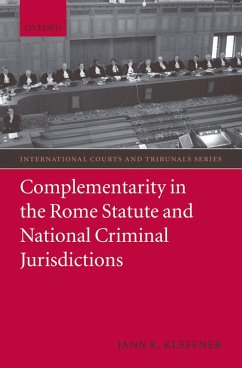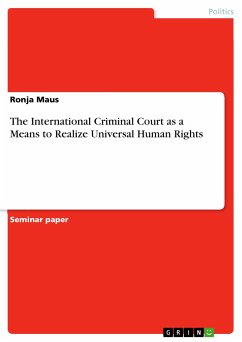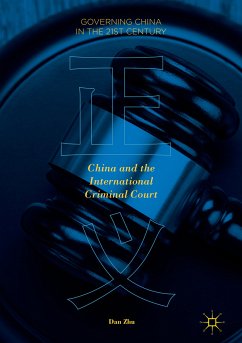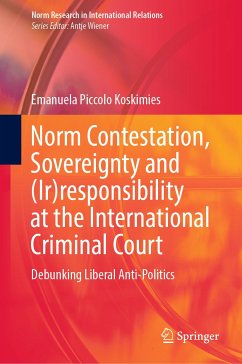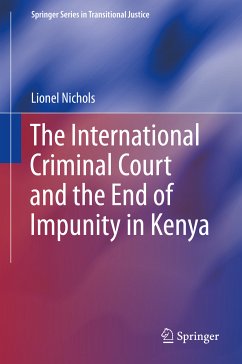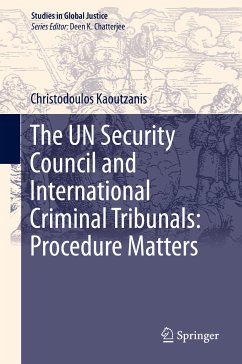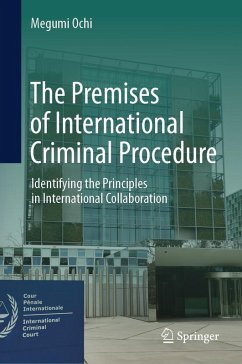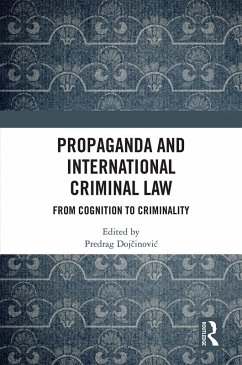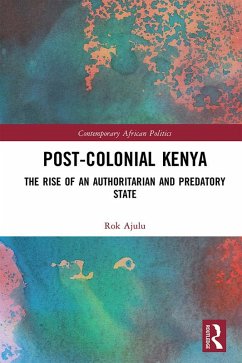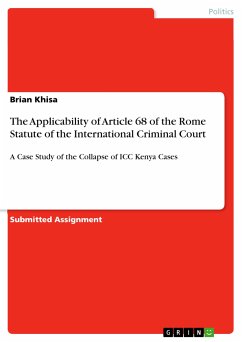
The Applicability of Article 68 of the Rome Statute of the International Criminal Court (eBook, PDF)
A Case Study of the Collapse of ICC Kenya Cases
Sofort per Download lieferbar
Statt: 13,95 €**
8,99 €
inkl. MwSt. und vom Verlag festgesetzt.
**Preis der gedruckten Ausgabe (Broschiertes Buch)
Alle Infos zum eBook verschenkenWeitere Ausgaben:

PAYBACK Punkte
0 °P sammeln!
Submitted Assignment from the year 2021 in the subject Politics - Topic: Public International Law and Human Rights, grade: 71, University of East London, course: INTERNATIONAL CRIMINAL LAW, language: English, abstract: This essay seeks to examine the impact and application of the Rome Statute of the International Criminal Court (ICC) with respect to Article 68, which places significant responsibility on the ICC to protect victims and witnesses. The essay relies on a case study of the collapse of the ICC Kenya cases against President Uhuru Kenyatta, Deputy President William Ruto and Joseph arap...
Submitted Assignment from the year 2021 in the subject Politics - Topic: Public International Law and Human Rights, grade: 71, University of East London, course: INTERNATIONAL CRIMINAL LAW, language: English, abstract: This essay seeks to examine the impact and application of the Rome Statute of the International Criminal Court (ICC) with respect to Article 68, which places significant responsibility on the ICC to protect victims and witnesses. The essay relies on a case study of the collapse of the ICC Kenya cases against President Uhuru Kenyatta, Deputy President William Ruto and Joseph arap Sang, which were largely attributed to witness interference. The essay argues that while the successful trial of cases at the International Criminal Court relies heavily on the testimony of key witnesses, the Court's lack of ability to ensure the safety of the witnesses in accordance with Article 68 of the Roman Statute, remains to be a matter of significant concern in the prosecution of core international crimes. The first part of the essay presents an outline of International Criminal Law from its origins to formation of the International Criminal Court. The essay then moves on to a critical examination of the Rome Statute, with an emphasis on the application of Article 68, based on the ICC framework and jurisprudence. This section emphasizes how crucial witnesses withdrew from the ICC Kenya cases, casting doubts on the Court's capability to protect key witnesses. Before concluding, the final section addresses the International Criminal Court's shortcomings in enforcing International Criminal Law through witness protection and makes recommendations.
Dieser Download kann aus rechtlichen Gründen nur mit Rechnungsadresse in A, B, BG, CY, CZ, D, DK, EW, E, FIN, F, GR, HR, H, IRL, I, LT, L, LR, M, NL, PL, P, R, S, SLO, SK ausgeliefert werden.




